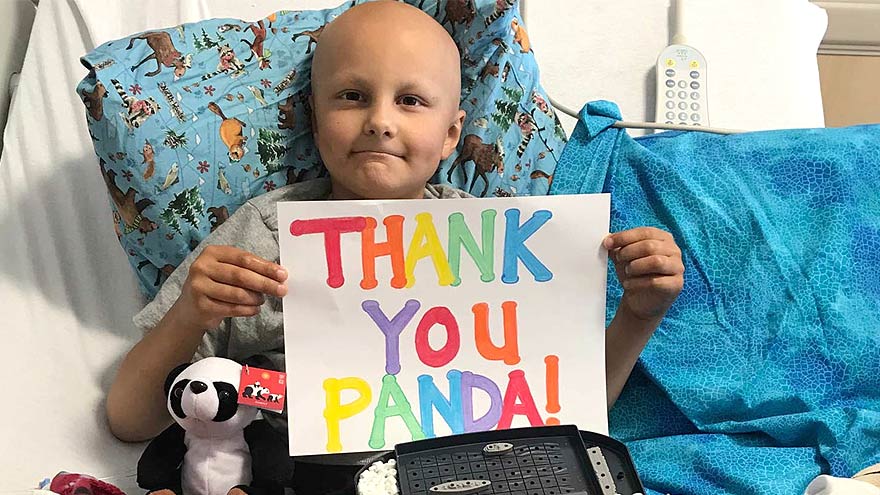Buscar
-
How to Treat a Sprain or Strain
Injuries happen to everyone. They are caused by participating in sports, recreational activities like hiking, and even by accidentally stepping off a curb wrong. If you experience a sprain or strain, the first few days are often the most painful. Renown Sports Medicine physicians Luis Palacio, MD and Brandon Hockenberry, MD walked us through what to do after an injury. Listen to Your Body See a medical professional right away if: You know or suspect that a bone is broken You are having difficulties putting full weight on a joint of the leg Pain or swelling is severe There is a sign of an infection, such as redness and warmth in the joint The First 24-72 Hours Joint sprains tend to swell more than muscle strains. You can use ice as needed for comfort and to relieve any pain, but do not use ice for more than 15-20 minutes at a time. Ice and NSAIDs (such as ibuprofen) can help prevent excessive swelling and mask the pain, but they do not speed recovery. Some research shows that overuse of ice actually delays recovery. During the first 24-72 hours, your injury will go through an inflammation phase. Inflammation is your body’s natural way to dispose of dead tissue cells, build new healthy structures, and hopefully heal even stronger than before.
-
3 datos importantes de atención médica para la generación milenial
Many millennials are fortunate to have good health, but it’s important to be prepared for your next doctor’s visit. Here are three things that millennials should stay on top of for tracking and maintaining their health. For many millennials, doctor visits and preventive healthcare fall by the wayside. Alison Lynch, MD, a family medicine provider with Renown Medical Group says there are a few key things you can do now to set yourself up for a healthy future. 1. Establish with a Primary Care Provider Millennials are more likely to go to urgent care or consult the internet when a healthcare issue arises. While these are helpful tools, here’s a better one: a primary care provider. The benefit of establishing with a primary care provider is that your medical records, history and a baseline for your health will be documented. That means that when a problem or question comes up, your doctor will already have helpful information on file and can help you navigate your needs. Having a primary care provider is often required for prescription refills and referrals to a specialist. By establishing now, you’ll be able to get what you need in the future much faster. Make an Appointment Today 2. Protect Yourself and Your Community There are a few vaccinations and screenings that Dr. Lynch recommends for millennials. Flu Shots: These are available every year and are recommended for protecting not only yourself against the flu but also others you may come into contact with. Flu shots are usually available from August through December through your healthcare provider, pharmacies and pop-up events. Tetanus or Tdap: Most people receive a tetanus shot as a child, but it’s recommended that everyone get a booster every 10 years. If you are overdue, talk to your primary care provider or pharmacist about getting updated. Pap smear: If you’re a woman, a pap smear is recommended every three years in your 20s and every five years in your 30s. HPV vaccine: This vaccine helps prevent the virus that causes cervical cancer as well as the majority of head and neck cancers and warts. The HPV vaccine is recommended for all genders up until age 45. STD screening: Consider an STI/STD screening if you’re sexually active.
-
Human Trafficking Happens in Nevada
Each month an average of 5,016 individuals are sold for sex in Nevada. Frequently the victims of human trafficking are women and children. That’s why Renown, along with other community groups, is leading efforts to help victims. Specifically identifying them and connecting them to the support services they need. The purpose is to restore their mental and physical health give them hope for a better life. Supporting Our Community Our goal is to identify victims, providing compassionate care for the complex needs of this vulnerable population. By building partnerships with key agencies and advocates in the community and creating policies around human trafficking, we also aim to transition victims safely to community-based services. Along with training, Renown healthcare workers are armed with pocket guides reminding them how to support human trafficking victims. To provide awareness about this crisis, Renown has implemented four key initiatives: Educate health care providers Execute policies and procedures to identify victims Build partnerships with local law enforcement, emergency services and local advocates Connect victims to crucial community resources Human Trafficking: How You Can Help Awaken acts to transform our community with the ultimate goal of ending commercial sexual exploitation. In 2020, Awaken worked with 173 women and children. Awaken’s programs include a drop-in center, an 18 to 24 month transitional housing program, an educational center for trafficked youth, rental assistance, recovery groups, therapy, tutoring, case management, mentorship, safety, and community. National Human Trafficking Hotline: 1-888-373-7888 Local Emergency: 911 Did You Know?
-
Panda Cares Center of Hope at Renown Children's Hospital
When you have an ill child in the hospital, it is a stressful event. And Panda Express is helping local families support children who need special care. Their generous donation provides much-needed equipment, programs, and resources via the new Panda Cares Center of Hope, Renown Children’s Specialty Center. Their partnership directly benefits patients and their families! The ‘Panda Cares Center of Hope, Renown’s Children’s Specialty Center’ In fact, this new center provides care to not only children, but also comprehensive support to the entire family. Similarly, it creates an environment that reduces stress, promotes healing, and provides a superior patient and family experience. This facility upholds Panda Express’ mission, vision, and values and its four pillars: to directly help fund the emotional, mental, physical, and spiritual needs of children. This center, the first-ever in northern Nevada, will provide care for children who have chronic conditions. In particular, it offers ongoing treatment, health management, and specialty medical services, including: Nephrology Endocrinology Neurology Pulmonary Infectious Diseases Medical Genetics Adolescent Medicine How You Can Help! When you order from Panda Express, you can opt to round up your change, which will help support programs and services, such as the Center of Hope for Renown Children’s Hospital. Order Online A Partnership for Health & Education of Underserved Youth This partnership allows Renown Children’s Hospital to continue to strengthen regional services and increase Panda’s visibility within our growing community. Last year, 21,930 sick children received care from Renown Children’s Hospital. To date, Panda Express has raised $449,200 in financial support to assist us in providing health and education to every child, regardless of illness, injury, insurance, or ability to pay. Panda Express funds have already supported: Giraffe omni beds for the NICU Ultrasound machine for the Children’s ER Panda warmers and a hand held Accuvein machine Child Life Program to support sick patients and families Meeting room in the Children’s Specialty Center In kind donations, volunteer time and support of local events such as the University of Nevada Reno, Wolf Pack Dance Marathon
Read More About Panda Cares Center of Hope at Renown Children's Hospital
-
The Facts About Menopause and Early Menopause
Menopause is something that every woman experiences at some point in her lifetime. Learn what to expect and how you can help manage the symptoms and health risks. Most women don’t experience menopause until their 50s, but certain factors such as chromosomal abnormalities, glandular problems and chemotherapy can cause early menopause before the age of 40. No matter what your age, it’s a good idea be aware of the risks and treatments available to maintain a comfortable and healthy lifestyle. Health Risks of Menopause Two of the biggest health risks posed to women who have gone through menopause are bone density loss and risk of cardiovascular disease. Bone loss can be treated with bisphosphonate and estrogens. “Calcium with vitamin D and weight bearing exercise will also limit bone loss,” says Vickie Tippett, MD and OB/GYN at Renown Health. For cardiovascular risk, a healthy lifestyle is key. Discontinuing tobacco use, getting regular exercise and maintaining a healthy weight and diet all help reduce a woman’s risk of cardiovascular disease. Managing Discomforts of Menopause One of the most common complaints about menopause is the discomfort of hot flashes. “Hot flashes can be treated with systemic estrogen alone or in combination with progesterone or another agent similar to estrogen,” Dr. Tippett says. “Non-hormonal medications such as SSRIs and antidepressants also work.” Vaginal dryness, another common symptom of menopause, can also be treated with estrogen, estrogen-like compounds and personal lubricants. Pills, patches, creams and many other formulations are available to help alleviate discomfort. Knowing when, why and what to expect when it comes to menopause can help make the transition easier. Learn the facts about menopause in the infographic below.
Read More About The Facts About Menopause and Early Menopause
-
What Every Woman Needs to Know About Dense Breast Tissue
In honor of International Women’s Day, we’re working to spread the word about taking care of your breast health and encouraging the women in your life to do the same. Heather Reimer is on a mission — a mission to educate women everywhere about breast tissue type. For women with dense breasts, knowing your breast tissue type is absolutely critical, as cancers embedded in dense breast tissue are not always detectable with a mammogram alone. Dense breast tissue requires a breast ultrasound screening to get a complete breast health picture. Whole Breast Ultrasound for Dense Breast Tissue Heather knows this firsthand. She has dense breasts, and in this video she shares her story about finding breast cancer during a breast ultrasound screening — cancer that went undetected with her mammogram screening alone. As a result of that experience, Heather founded Each One. Tell One. — a movement to encourage women to pass along this information to others and to prompt those with dense breast and implants to consult with their doctor to schedule a whole breast ultrasound screening. To schedule a mammogram or a whole breast ultrasound, call 775-982-8100.
Read More About What Every Woman Needs to Know About Dense Breast Tissue





